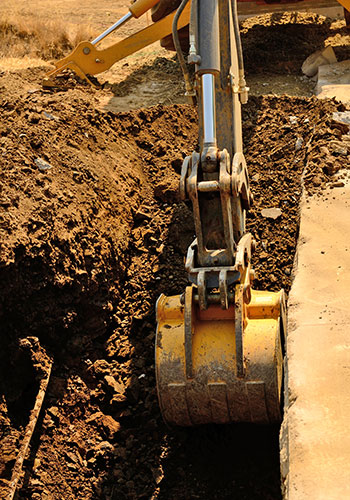CPS Energy’s offices and customer service centers will be closed on Wednesday, December 24, and Thursday, December 25, 2025, in observance of Christmas. We will reopen on Friday, December 26, at 7:45 AM. Although our call center will be closed for regular business, we remain open for customers to report natural gas or electric emergencies at any time by calling 210-353-HELP (4357) or 1-800-870-1006. Online services may be conveniently accessed through Manage My Account (MMA).
Reporting Pipeline Damage
Pipeline Damage Prevention Rules
Effective Sept. 1, 2007, the Railroad Commission of Texas adopted Title 16, Texas Administrative Code (TAC), Part I Chapter 18 entitled Underground Pipeline Damage Prevention to increase pipeline safety in Texas and to reduce damage to underground pipelines resulting from the movement of earth by persons in the vicinity of those pipelines, which is the number one cause of pipeline incidents in the state. A full version of the rule can be found on the Commission’s website.
Reporting Requirements
Texas law requires all damage to pipelines caused by excavators to be reported by both the pipeline operator and the person digging around the pipeline. If you are digging near a pipeline, you are considered to be an excavator. Operators and excavators that are not in compliance with Chapter 18 can be cited violations and penalties of up to $10,000 per day per violation under these rules.
Brochure: Preventing & Reporting Pipeline Damage
Excavation Damage
Pipeline damage includes but is not limited to:
- Defacing, scraping, displacement, penetration, destruction, or partial or complete severance of an underground pipeline or of any protective coating, housing, or other protective device of an underground pipeline;
- Weakening of structural or lateral support of an underground pipeline that affects the integrity of
the pipeline; or - Failure to properly replace the backfill surrounding an underground pipeline.
Excavator/Operator Protocols
If an excavation project is too large to mark using white-lining, or is so expansive that a full description cannot be provided on a line locate ticket, then the operator and the excavator shall conduct a face-to-face meeting to discuss the excavation activities and establish protocols per Chap. 18.3(d).
After compliance with the notice requirements of Chap. 18, an excavator and an operator may jointly establish the protocols applicable to an excavation site in the vicinity of underground pipelines based on the particular characteristics of each job.
Follow guidelines for applicable protocols to an excavation site per Chap 18.9.
Taking Action If a Pipeline is Damaged
In the event of an emergency, take immediate steps to protect people first and call 911 for hazardous conditions that endanger life or health. Notify CPS Energy at (210) 353-4357 (HELP).
Collect information for excavation damage to pipelines. Take written records and photographs with an object of reference in the picture to document the damage appropriately. Measure the exact depth of damage contact to pipeline. Give details on locate marks and damage area.
A Texas Damage Reporting Form (TDRF) must be filed with the Railroad Commission within 10 working days of the incident.
A working day is everyday that is not a Saturday, Sunday, or legal holiday (as specified by Chap. 662 TX Gov. Code).
Non-Compliance Activities
Violations and penalties may also be cited even if damage to a pipeline has not occurred. Examples include:
- Not calling before digging
- Not refreshing an expired locate ticket
- Calling for an emergency locate when the situation is not an actual emergency condition
